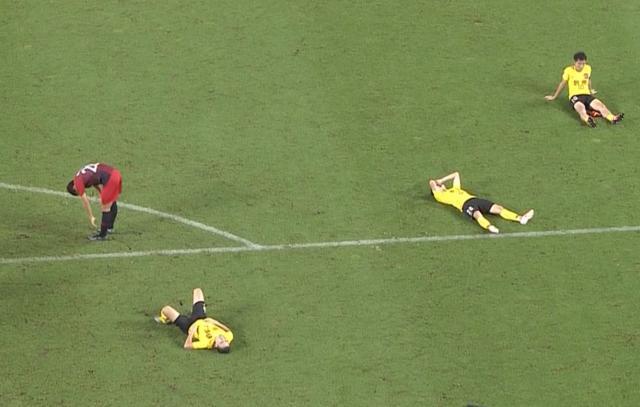高尔夫球释放的感觉
Title: Understanding and Correcting Golf Swing Fatigueinduced Deviations
Golf is a sport that demands precision and consistency in every swing. However, fatigue can significantly impact a golfer's performance, leading to deviations in their swing mechanics. Understanding the effects of fatigue on the body and implementing corrective measures can help golfers maintain their form and enhance their game.
When a golfer becomes fatigued, several physiological and biomechanical changes occur, affecting their golf swing:
- Muscle Fatigue: Fatigue in the muscles used for the golf swing, such as the core, shoulders, and arms, leads to decreased strength and coordination.
- Loss of Focus: Mental fatigue can cause a decline in concentration and focus, leading to errors in judgment and execution.
- Decreased Range of Motion: Fatigue can reduce flexibility and range of motion, limiting the golfer's ability to rotate their body effectively during the swing.
- Altered Timing and Tempo: Fatigue disrupts the golfer's timing and tempo, resulting in rushed or delayed movements during the swing.
Common deviations in the golf swing due to fatigue include:
- Slice or Hook: Fatigue can cause the golfer to lose control over the clubface, resulting in shots that curve to the right (slice) or left (hook) excessively.
- Loss of Distance: Fatigueinduced weakness leads to a decrease in clubhead speed and power, resulting in shorter distances on shots.
- Missed Shots: Inconsistent swing mechanics due to fatigue can lead to mishits, topped shots, or shots struck fat or thin.

To address fatigueinduced swing deviations, golfers can implement the following strategies:
- Physical Conditioning: Engage in a regular fitness regimen focused on improving strength, flexibility, and endurance, with specific emphasis on core stability and rotational strength.
- Proper Nutrition and Hydration: Maintain adequate hydration and consume a balanced diet to fuel the body for optimal performance and sustain energy levels throughout the round.
- Rest and Recovery: Ensure sufficient rest between practice sessions and competitive rounds to allow the body to recover adequately and prevent cumulative fatigue.
- WarmUp Routine: Prior to playing or practicing, perform dynamic stretches and a comprehensive warmup routine to prepare the body for the physical demands of the golf swing.
- Mental Preparation: Practice mindfulness techniques and mental visualization to enhance focus, concentration, and composure on the course, especially during moments of fatigue.
- Swing Mechanics Review: Work with a qualified golf instructor to assess swing mechanics and identify any compensations or deviations caused by fatigue. Focus on maintaining proper posture, alignment, and tempo throughout the swing.
Fatigue is a common challenge faced by golfers that can lead to deviations in their swing mechanics and negatively impact their performance. By understanding the effects of fatigue on the body and implementing appropriate corrective measures, golfers can mitigate these deviations and maintain consistency in their game. A holistic approach that addresses physical conditioning, nutrition, rest, mental preparation, and swing mechanics review is essential for optimizing performance and minimizing the impact of fatigue on the golf course.
This HTML document provides insights into the effects of fatigue on a golfer's swing and offers practical solutions for correcting and minimizing these deviations.











